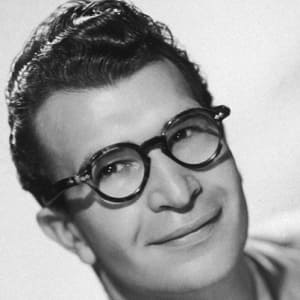
Mazie Hirono
Mazie Hirono is the first Asian-American female, Buddhist and Japan-born U.S. senator.
Synopsis
Born in Japan in 1947, Mazie Hirono moved to Hawaii seven years later with her family. She graduated from the Georgetown University Law Center in 1978 and briefly worked in the legal field before winning a seat in the Hawaii State House of Representatives. She served in this capacity until being elected Hawaii's lieutenant governor in 1994. After two terms as lieutenant governor, Hirono entered the Hawaii gubernatorial elections of 2002, but lost. In 2006, however, she was elected to the U.S. House of Representatives, a post she held until she was elected to the U.S. Senate in 2012, thereby becoming the first Asian-American woman, Buddhist and Japan-born individual to be elected to the Senate.
Early Years
Mazie Keiko Hirono was born in Fukushima, Japan, on November 3, 1947, to an American mother, and lived in Japan for the first seven-plus years of her life. When she was around 8 years old, Hirono's mother, fleeing her alcoholic husband, left the country with Mazie and her older brother for Hawaii. Mazie's baby brother was left with his grandparents in Japan, and the three went to Hawaii two years later.
Despite not knowing how to speak English, Mazie Hirono was enrolled in elementary school, where she landed her first job—student cashier in the lunchroom. Several years later, Hirono graduated with honors from Kaimuki High School and put herself through school at the University of Hawaii at Manoa, graduating Phi Beta Kappa in 1970. From there, she attended law school at Georgetown University, graduating in 1978. When she wasn't busy with her studies, Hirono tutored, volunteered at a mental hospital, and worked for a summer with at-risk teens through a YWCA program.
Life of Civil Service Begins
In 1980, Hirono decided to take her service to others to the next level, running for a seat in the Hawaii State House of Representatives. She won her race and took her seat in January 1981 (a post she held until 1994), and eventually came to chair the Consumer Protection and Commerce Committee. From this position, Hirono led consumer protection efforts—spearheading a law extending expiration dates on gift cards, among other work in this capacity—and insurance reform.
In 1994, Hirono was elected lieutenant governor of Hawaii and led efforts to bolster the state's tourism industry. Also, as she had done in the state House of Representatives, as lieutenant governor, she fought to revamp insurance laws and extended her reach into the worker's compensation realm, reforming that infrastructure as well.
In 1998, Mazie Hirono once again ran for lieutenant governor, winning by a razor-thin margin. Once re-elected, Hirono was back to work, becoming president of the National Commission on Teaching, the Hawaii Policy Group and America's Future. She also launched the first wide-ranging Pre-Plus program, which paved the way for universal pre-school education in the United States. When the end of her second term came along in 2002, Hirono could not seek another re-election due to term limits, and, thusly, a change of pace was in order. She decided at first run for mayor of Honolulu, but fate interceded and she ran for the governorship of Hawaii instead. She won her primary race, if only by 2,000 votes, but lost the general election to Linda Lingle, who became Hawaii's first female governor.
U.S. Congress and Senate
Down but not out, Hirono stayed involved in Hawaiian politics, founding the Patsy T. Mink Political Action Committee, which raises money for pro-choice female Democratic candidates in Hawaii. In 2006, Hirono was ready to run again, this time for a seat in U.S. Congress. She won the 2nd District seat by a comfortable margin, becoming the first Asian woman to win election to Congress, and continued to lobby on behalf of her lifelong causes: education, labor, and children and women's issues, as well as issues of importance to the state of Hawaii.
In 2012, Hirono announced that she would run for Hawaii's open Senate seat. Her opponent was once again Linda Lingle, Hawaii's governor. This time around, Hirono prevailed, and by a wide margin. Her victory made her the first Asian-American woman to be elected to the Senate, the first elected female senator from Hawaii, the first U.S. senator born in Japan and the nation's first Buddhist senator. She was sworn in on January 3, 2013, by U.S. Vice President Joe Biden.




